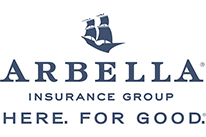Starting a new venture is exciting but also stressful. Whether you are turning your side business into a real company or developing a completely new product, you have to grapple with a lot of uncertainty. Even if you know you have a great idea and a great product, the future is still unpredictable. Furthermore, you might need to live off of your savings for quite some time.
To make it easier for yourself to be prepared for the future and manage any unexpected losses, you might want to consider insuring your start-up.


A lot of things can hinder your business operations and set you back financially: a business vehicle might crash, someone might break into your office and steal your equipment, or a client might file a lawsuit. While you can do a lot to increase the security of your property and ensure the safety of your products, you cannot prevent everything that could go wrong.
ince it is not cheap to repair or replace damaged property and settle lawsuits, it is best to find insurance that helps cover those costs when the need arises. What is more, a proactive approach to insurance helps attract investors, reassure potential customers, prevent disruption to your business, and aid your growth and expansion. You might also be legally required to have insurance – check your state laws to learn more about the exact requirements.

Many insurance companies offer start-ups bundles of various policies. It is also possible to tailor those policies, adjust coverage limits, and add endorsements.
Common policies included are general liability, commercial property, workers' compensation, cyber insurance, and professional liability. What kind of policies you specifically need depends on the size of your company, how many employees you have, your industry, business model, and many other things, which is why most insurance companies tailor the policies to the specific client.
Most businesses, regardless of their size, should have these three coverages:
Commercial property insurance covers damage to the property you own or rent from fire, water, vandalism, theft, and other disasters. It does not cover flooding or earthquakes. Generally, coverage applies to the structure and contents of the building, including inventory.
General liability insurance covers any lawsuits related to third-party bodily injuries and property damage. It covers any legal fees, payments, and out-of-court settlements.
Commercial property insurance and general liability insurance are often offered together as a business owners’ policy.
It covers you for lawsuits where someone claims that they lost money due to your startup’s activity, error, or omission. You will have coverage for the legal fees and other related costs.
For smaller start-ups with less than 10 employees, these coverages are usually sufficient.
Here are additional coverages businesses need as their size and consequently risks grow:
Cybercrime is on the rise. For tech start-ups, this is of the utmost importance. Other businesses can also benefit from cyber liability insurance. It will protect against any fines, lawsuits, or penalties that arise from a hacker attack or data breach. Additionally, it will cover the cost of data restoration, forensic analysis, and other related expenses.
If a worker becomes injured or ill because of their work or work environment, you will be responsible for the healthcare costs and sick pay while they are recovering. The specific legal requirements vary by state.
Like personal auto insurance, it covers damage caused to other vehicles and people when you (or an employee) causes a car accident. It can also help cover your own repair costs.
This policy will protect the executives and board members from liability claims and help cover their defense costs. It protects both the executives’ personal assets and the company’s assets.
Key-person life insurance is a policy a company can purchase to ensure an executive’s life. If that person dies, the company will receive a payout from the insurance company. Losing a key executive or an owner is a big hit for a company, especially a smaller one, so this benefit will give the company some time and finances to find a new person to save the company.
Suppose a lawsuit is brought against a start-up by employees or government agencies. In that case, this policy covers the associated legal costs. Claims can include allegations of discrimination, retaliation, and harassment..
While you should never just take the cheapest insurance package for the sake of saving money, you can save money on it. Moreover, we encourage you to find a policy that covers all your needs without costing more than necessary. Consider these options to get better rates without compromising on coverage:
Before you go back to working on your start-up, send us an email, give us a call, or fill out the free form quote on our website to find the best policy for your business needs.




